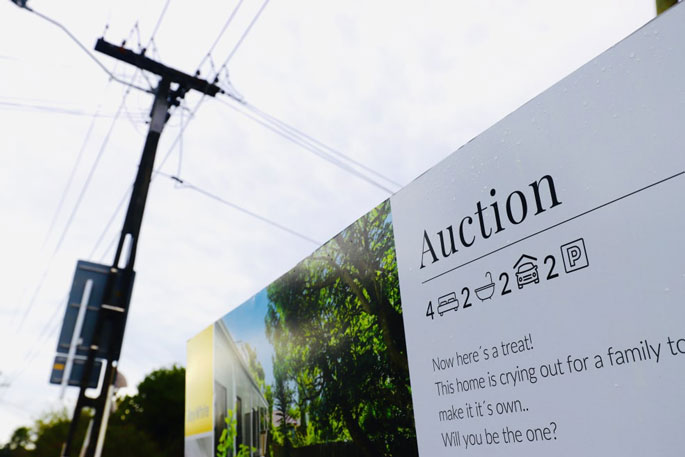New property listings around the country last month plunged to a 16-year record low for the month of March, according to latest figures.
A report from leading property website realestate.co.nz shows more than 9200 went up for sale last month, a drop of 17.7 per cent compared to March 2022.
It was the lowest number they had seen in March over a 16-year period and just over half of the 17,867 which hit the market in March 2007.
Realestate.co.nz spokesperson Vanessa Williams says several external factors were causing hesitancy among vendors.
"Kiwis love property. But in times of uncertainty, we tend to delay decisions to buy or sell. I think that is what we are seeing here.
"We saw a similar thing in March 2020 when high levels of uncertainty with the arrival of Covid-19 and the coming election saw people hitting pause on listing their homes for sale."
Listings dropped by 16.5 per cent in March 2020 compared to the same time a year earlier, before listing numbers returned to a more typical volume a year later.
Although year-on-year listings had dropped in most regions, Coromandel (20.4 percent), Marlborough (18.6 percent) and Taranaki (9.7 percent) had bucked the trend with increases reported.
The largest drops had been felt in Gisborne (43.9 percent), Central North Island (30.2 percent), Wellington (29.7 percent), Manawatu/Whanganui (28 percent) and Hawke's Bay (26.1 percent).
Auckland had experienced a 12 month decrease of more than 22 percent.
Average house prices also dropped by 11.7 per cent year-on-year with the median asking price at $856,627.
However, average asking prices in the Central Otago/Lakes region were at a 16-year high, with the average asking price soaring to just under $1.5m.
The report shows a stalling of housing stock growth compared to previous months with a year-on-year decline seen in Wellington, Gisborne and Auckland.
Coromandel was the only region that saw stock increase during March by more than 100 percent year-on-year.
Three regions last month also saw their stock levels decline in a year, including Wellington (19.4 per cent), Gisborne (8 per cent) and Auckland (1.8 per cent).
Wellington was the only region which experienced decreasing levels the previous month also.
Williams says it may serve as an early sign of a "shift in these markets".
"New listings coming onto the market have been low since the beginning of 2023, and I think we are going to start to see this decline reflected in stock levels as the current inventory starts to sell out."
Stock was up nationally by 14.1 per cent last month compared to the same time last year.



0 comments
Leave a Comment
You must be logged in to make a comment.